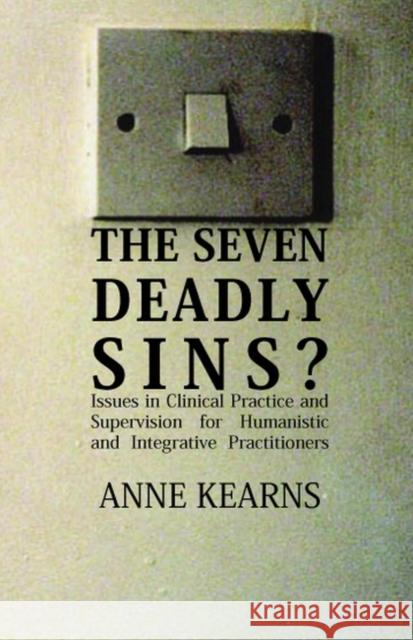The Seven Deadly Sins?: Issues in Clinical Practice and Supervision for Humanistic and Integrative Practitioners » książka
The Seven Deadly Sins?: Issues in Clinical Practice and Supervision for Humanistic and Integrative Practitioners
ISBN-13: 9781855753532 / Angielski / Miękka / 2005 / 232 str.
The Seven Deadly Sins?: Issues in Clinical Practice and Supervision for Humanistic and Integrative Practitioners
ISBN-13: 9781855753532 / Angielski / Miękka / 2005 / 232 str.
(netto: 148,31 VAT: 5%)
Najniższa cena z 30 dni: 145,09
ok. 16-18 dni roboczych.
Darmowa dostawa!
-The Seven Deadly Sins- grew out of a post-qualification training course of the same name. It aims to make more accessible some concepts from the world of psychoanalysis, self-psychology, and affective neuroscience, as well as commenting on the challenge of working -in the real world.- This is achieved by offering an integrative and anecdotal perspective on issues that have been generally un- or under-explored in trainings that have a humanistic emphasis, issues such as envy, shame, love and hate, trauma, addiction, money, and eating disorders. These issues are illustrated through the judicious use of clinical case studies. One case study in particular is referred to in several chapters, including one in depth, to emphasize that the same clinical presentation can be viewed through different lenses. Various -maps- are provided to assist the supervisor and clinician in holding opposing diagnostic models and in working with psychotherapy and counselling trainees.
The book follows a logical path with the first chapter exploring the beginnings of supervision and the supervisory relationship, while the latter chapters look at the issues detailed above, as well as other things such as the reasons for -labels- like the DSM categories. Kearns highlights the need to watch out for dogma and to deconstruct the myths that build up in the different therapies. The chapters can be read in isolation, which makes the book an ideal tool for the supervisor and clinician to use in response to specific issues.











